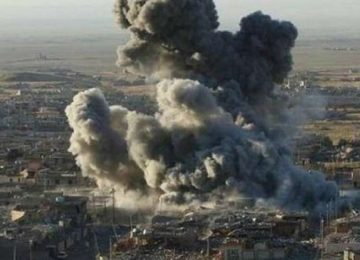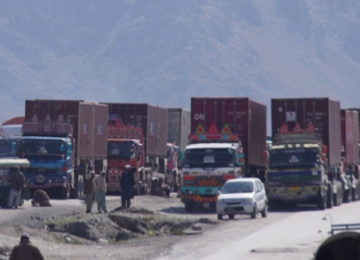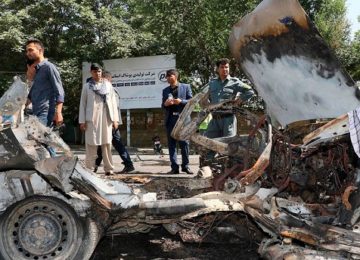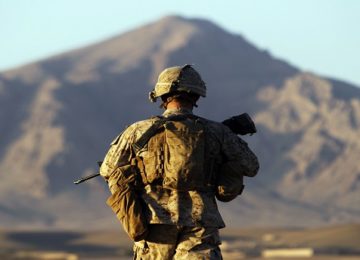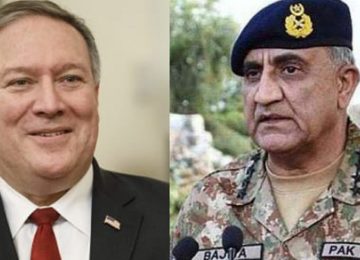Washington’s withholding of $50 million remaining in military reimbursements to Pakistan for fiscal year 2016 for not doing “enough to blunt the Islamist militant Haqqani network,” did not come as a surprise to many. Even during the final days of Obama administration, choruses of ‘Do More’ had become all too common for Pakistan.
By blocking this reimbursement, the US is sending a clear message; neither the ongoing nearly daily losses of the army and the police nor the counter-terrorism drive that has seen marked reduction in violence nor the battering the Pakistani economy has taken since the onset of the counter-terror war have convinced the US establishment of the intent. It also seems that Operation Zarbe Azb, started in June 2014, started on US demands for action in North Waziristan, has also had little impact on the US narrative towards Pakistan.
Washington’s ‘do-more’ mantra, which started in a broader definition, has now narrowed down to the Haqqani Network and actions against the group. Based on the incessant and at times acrimonious pressure and disagreements on Afghanistan and India – and the alignment of these three countries’ position on Pakistan – one would tend to conclude that the partnership that began with the Operation Enduring Freedom in October 2001, eventually covered under the US Coalition Support Funds program has nearly run its course. Neither did major non-NATO ally status for Pakistan help change the primary US narrative on Pakistan’s efforts against terrorism.
It seems that the US is still living in an old rhetoric towards Islamabad, without acknowledging a number of developments that have recently taken place in the region. Firstly, the new regional realignment that separates the geopolitical Indo-Afghan-US alliance from that the one comprising China, Pakistan, Russia, Turkey and to a certain extent Iran.
Both these blocs principally disagree on how to deal with the Taliban in Afghanistan. For the US bloc, the Taliban remain close to a terrorist outfit that doesn’t deserve any political consideration. For the latter, the Taliban represent a bulwark against the encroaching Daesh/ISIS, which they all consider as the instruments of destabilization. On the other hand, certain segments in Washington have also called for a dialogue to ensure long term peace in Afghanistan.
Also, in terms of Pakistan’s new alliances, the Chinese strategic embrace of Islamabad is cementing into an undeniable reality. The fact that as many as 35 cargo ships have docked at Gwadar in the last year or so – albeit with cargo for construction in the free zone – underscore how the CPEC related initiatives are maturing – undeterred by the occasional violence in Balochistan. Even with on and off incidents against Chinese workers in the region, officials in Beijing have time and again assured their full commitment towards the project and alliance with Pakistan.
Thirdly, no country foregoes its core strategic interests. Turkish Kurds, for instance, serve as the extension of the US interests in that region. But for the Turkish president Erdogan, the same Kurds are no less than terrorists out to destabilize Turkey.
In a similar manner, ISIS had initially ‘reportedly’ received unusual support from the US, Saudi Arabia and Turkey itself because they appeared to be the right tool to oust the Syrian president Basharal Assad. Ironically, most countries today loath the IS for its brutalities. But none has expressed any remorse for their initial support to them. Obviously, these countries did so in their own national interest. How can they expect other countries such as Pakistan – which has been embattled also because of the Soviet misadventure in Afghanistan and the US response thereof – to forego their strategic interests?
Also, what gives Pakistan an unusual confidence is the fact that the synergy of thoughts between China, Russia and Turkey understands Pakistan’s situation and geo-political position. It goes without saying that Pakistan’s civil and military rulers have to fix internal challenges and address Russo-Chinese reservations on Islamist militant groups hiding here in and outside the border regions.
Finally, with the injection of several billion dollars into the Pakistani economy between 2014 and 2018, the socio-economic conditions are bound to improve.
Even with the controversies and criticisms of the Chinese way of business, the China factor amounts to a big bail-out for Pakistan to the context of a) continued travel advisories by major western countries to their citizens, and b) reluctance and or refusal to invest in Pakistan. Thus, irrespective of any associated variables, the China factor promises to reap huge dividends for Islamabad. Also, in the medium to long term, the China factor will play a decisive role in determining Pakistan’s geo-political direction. This is likely to create a number of jobs and contribute towards human development in the country.
For these reasons, military aid such as the US CSF is going to lose its worth in the long run for Pakistan. Thus, it is about time, therefore, for Islamabad and Rawalpindi to thank Washington for this critical assistance since 2002 and also say goodbye to the Coalition Support Funds, which have occasionally been subject of controversy and accounting disagreements between the two military establishments, particularly since Raymond Davis and Salala episodes.
Pakistan now needs to act like a self-respecting and confident nation which is ready to correct its own course as well as poised to address others’ concerns on issues such as terrorism, regional peace and cooperation.
The writer heads the Center for Research and Security Studies, Islamabad and is an author of Pakistan: Pivot of Hizbut Tahrir’s Global Caliphate. He can be reached at Imtiaz@crss.pk.




